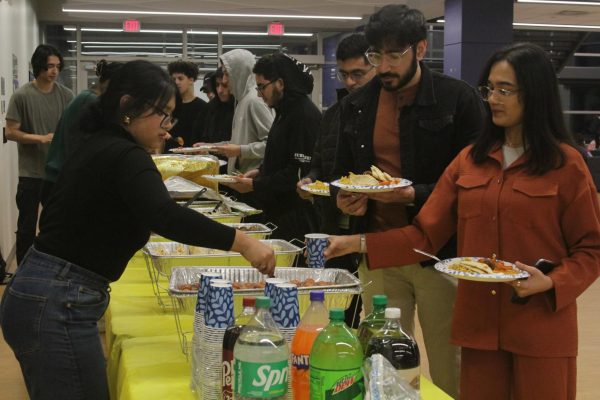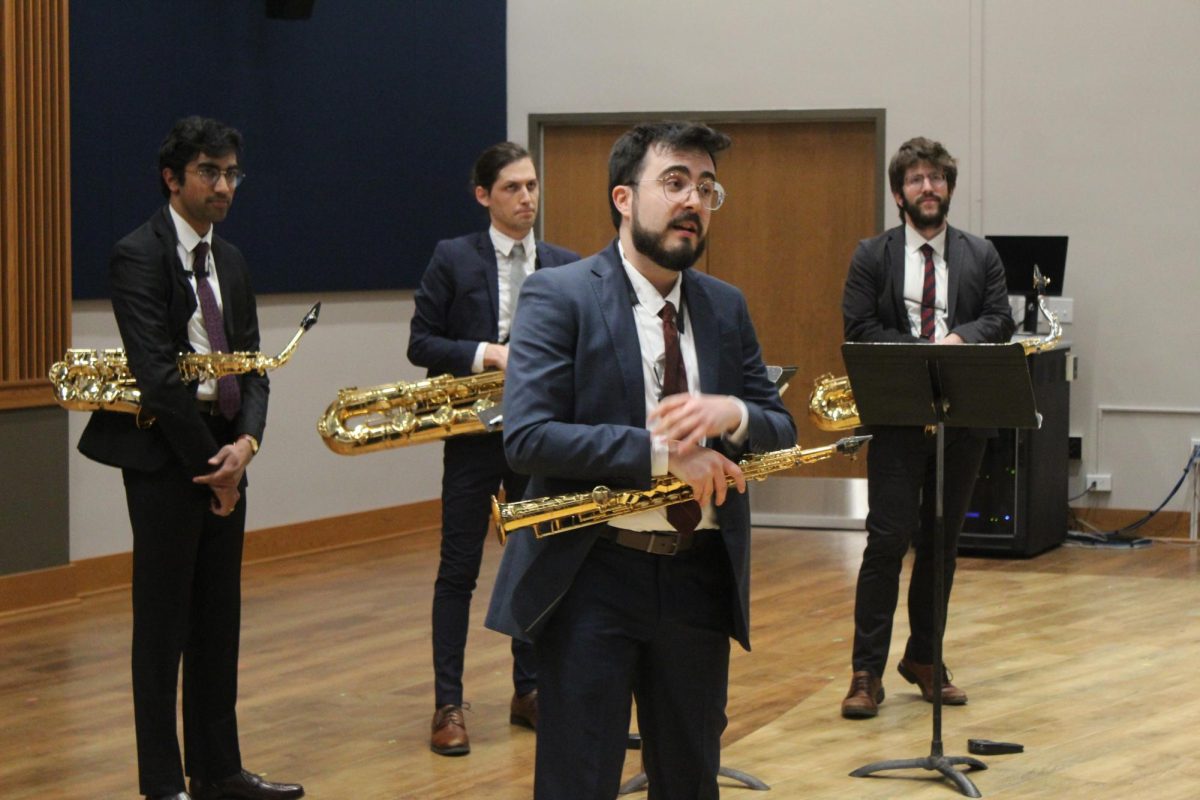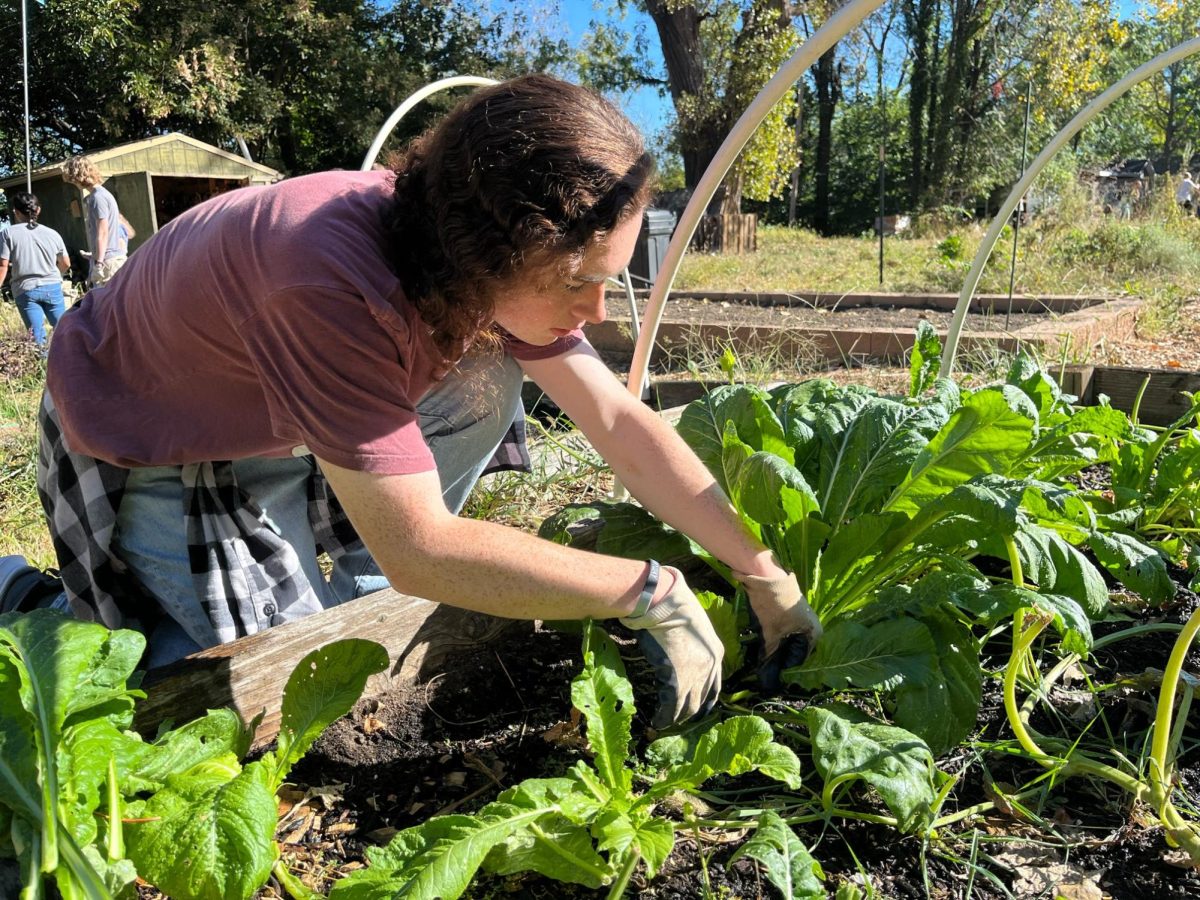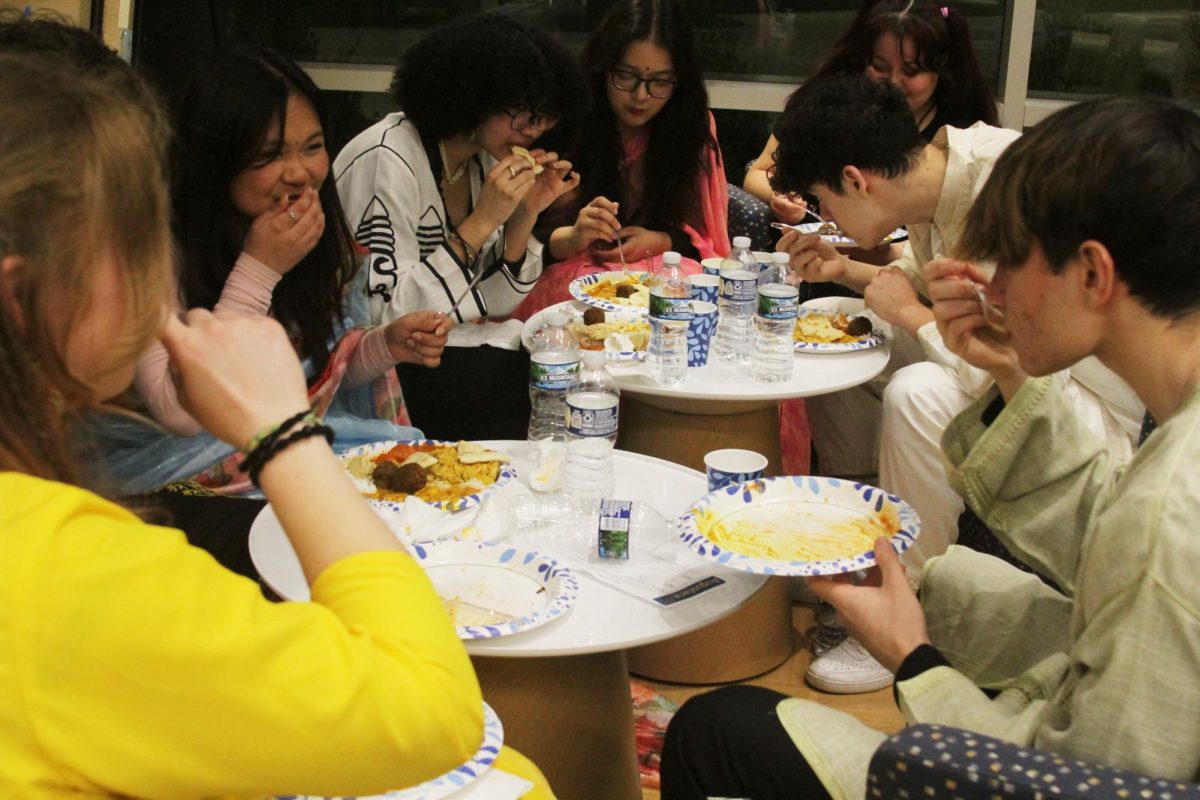Sitting in rows of tables adorned with tablecloths and vases of white flowers, students gathered together in the Lindberg commons as the sun began to disappear into the night.
Some students patiently waited to break their fast, while others were there to celebrate their first experience with Iftar.
On Friday, March 15, Augustana hosted its third Community Iftar, hosted by the Global Engagement Team (GET), the Muslim Student Association (MSA) and the Office of International Students and Scholars Services (OISS).
After Muslim students fasting during Ramadan broke their fast with water and three dates, they could go upstairs for prayer before coming back down to a savory feast.
Ramadan is a month that celebrates the time when Muslims believe the prophet Muhammed was given the first revelations of the Quran, the holy book of Islam. During this time of celebration, healthy adult Muslims fast from sunrise to sunset to honor one of the Five Pillars of Islam.
The meal after the sun sets during Ramadan is called Iftar, and it is typically celebrated with family and community members.
However, for both international and domestic students on campus, it looks a bit different from what they might know from home.
Senior Arslaan Naseer, president of the MSA, said that the difference in the celebration for students away from home can be hard, particularly with their limited options for food.
“For me, I just can’t imagine what it’s like for international students who may not have the ability to get food for Ramadan,” Naseer said. “Augustana has done a great job providing spaces for prayer, but I feel as though if the CSL could provide more Halal options, it would be easier on our Muslim students.”
Besides food options, Naseer said that being on campus has been a lot different than being at home with family and having the ability to celebrate in a more traditional way.
“When you’re at home, everybody’s kind of [participating]. But over here, it’s good too because there’s other Muslim students on campus,” Naseer said. “But it’s definitely different at home because you get home-cooked meals and you get to go to the mosque and do prayers there.”
The Community Iftar is an option for students who want to bring a sense of community back into Iftar and to provide a tasty meal for Muslim students to break their fast with.

The Community Iftar also gives non-Muslim students of Augustana the chance to learn more about other cultures and religions through fun interactive activities and, of course, food.
Sophomore Rojeena Thapa said that the experience of sharing a meal is something that can often bond people together and allow them to express parts of themselves with peers.
“Part of cultural events is to make sure the food is incorporated from all over the world so that we can bring together food and community,” Thapa said. “You don’t have to be Muslim for the event, it’s for people who are curious about culture and want to learn more about the people around them.”
During the meal, students from all over the world and all different religions sat together to enjoy their Friday night and the company of friends as they learned more about Ramadan, Iftar and the different roles their peers have in their religions and communities.
Senior Americus Mahatshahi, co-president of GET, said that having cultural events organized and run by students of that culture is good because other students are given the chance to learn from people with firsthand experience.
“When you experience someone’s culture with them, you learn a lot about their culture,” Mahatshahi said. “Experience is the best way to learn, which is why I think that events like Iftar, Diwali, Christmas or anything else like that, really allow students to experience the culture of their international peers.”










































































































